ORTODOXIA CATHOLICA
Orthodox Blog of Father Matei Vulcănescu



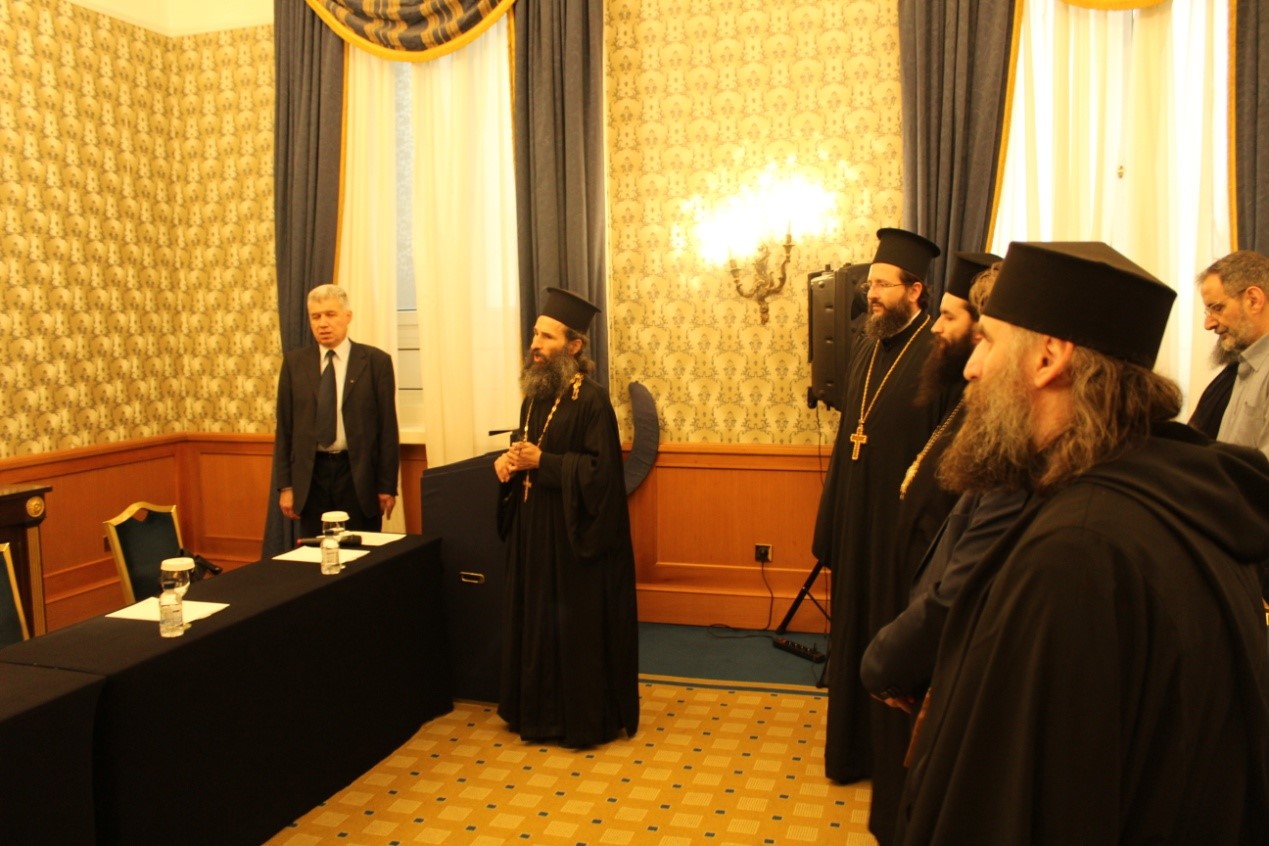
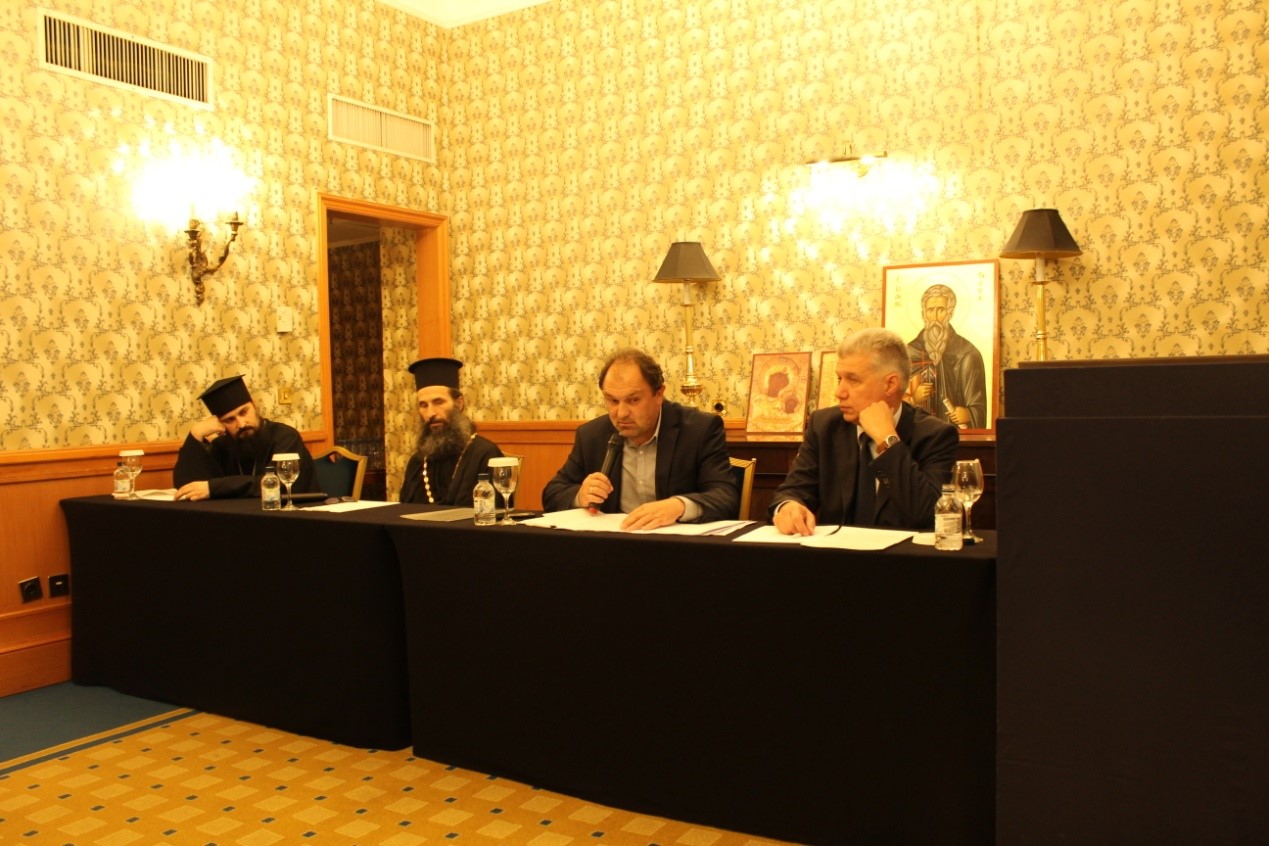
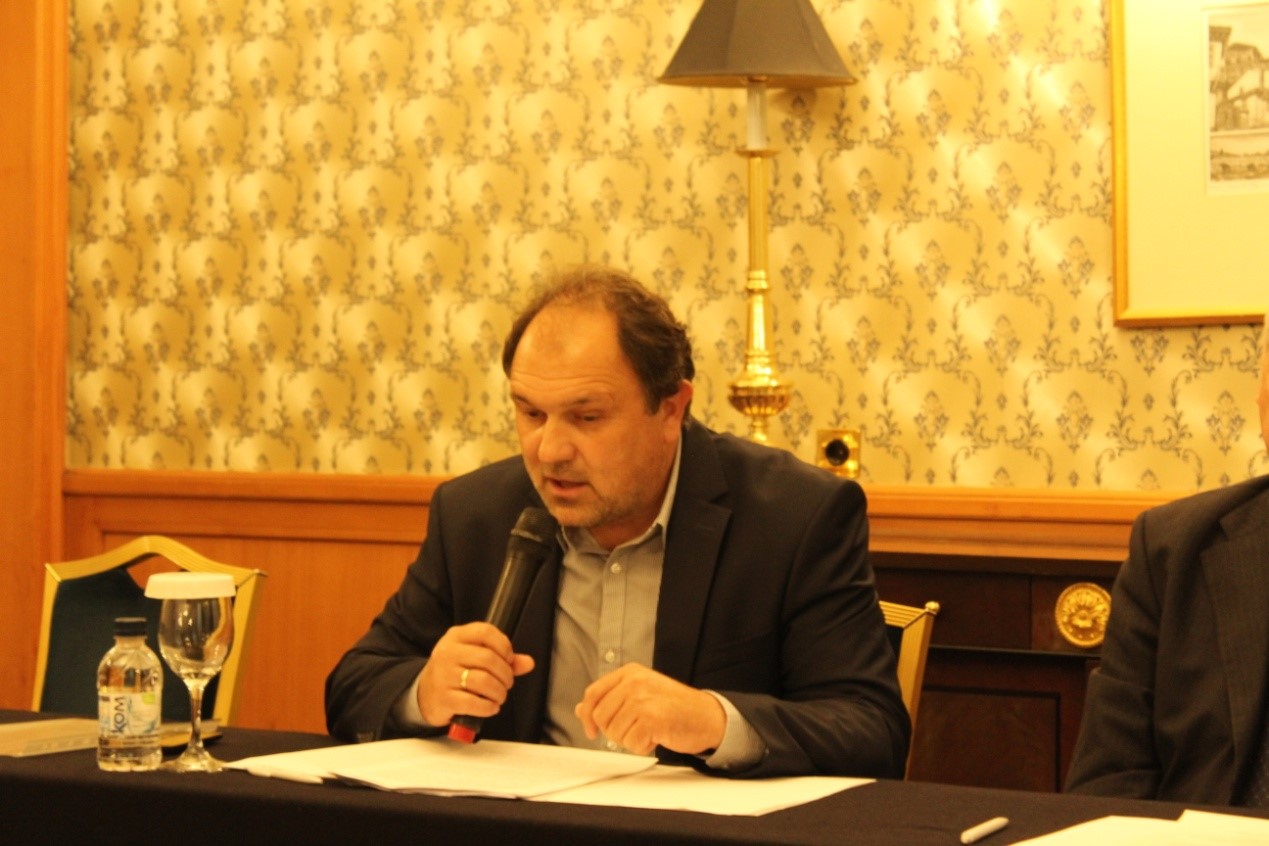

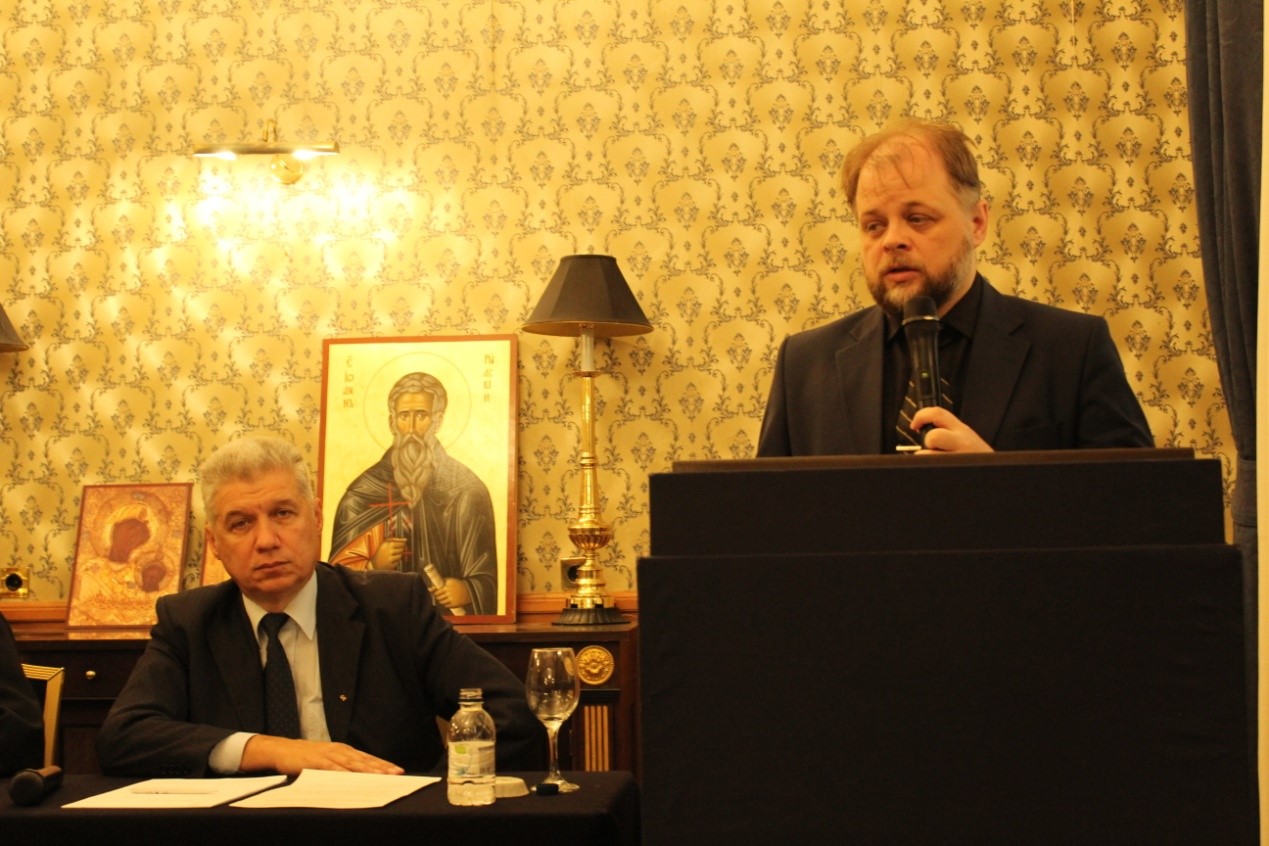
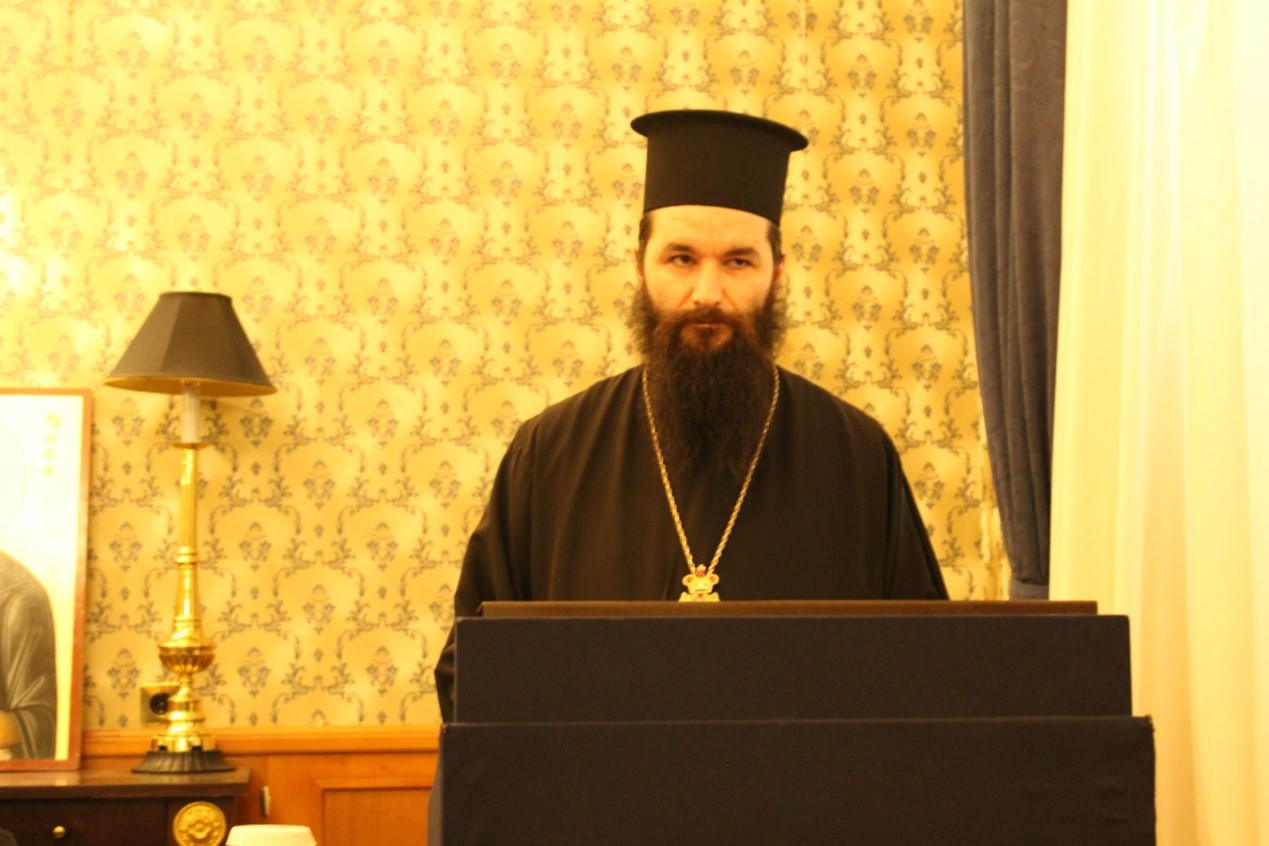
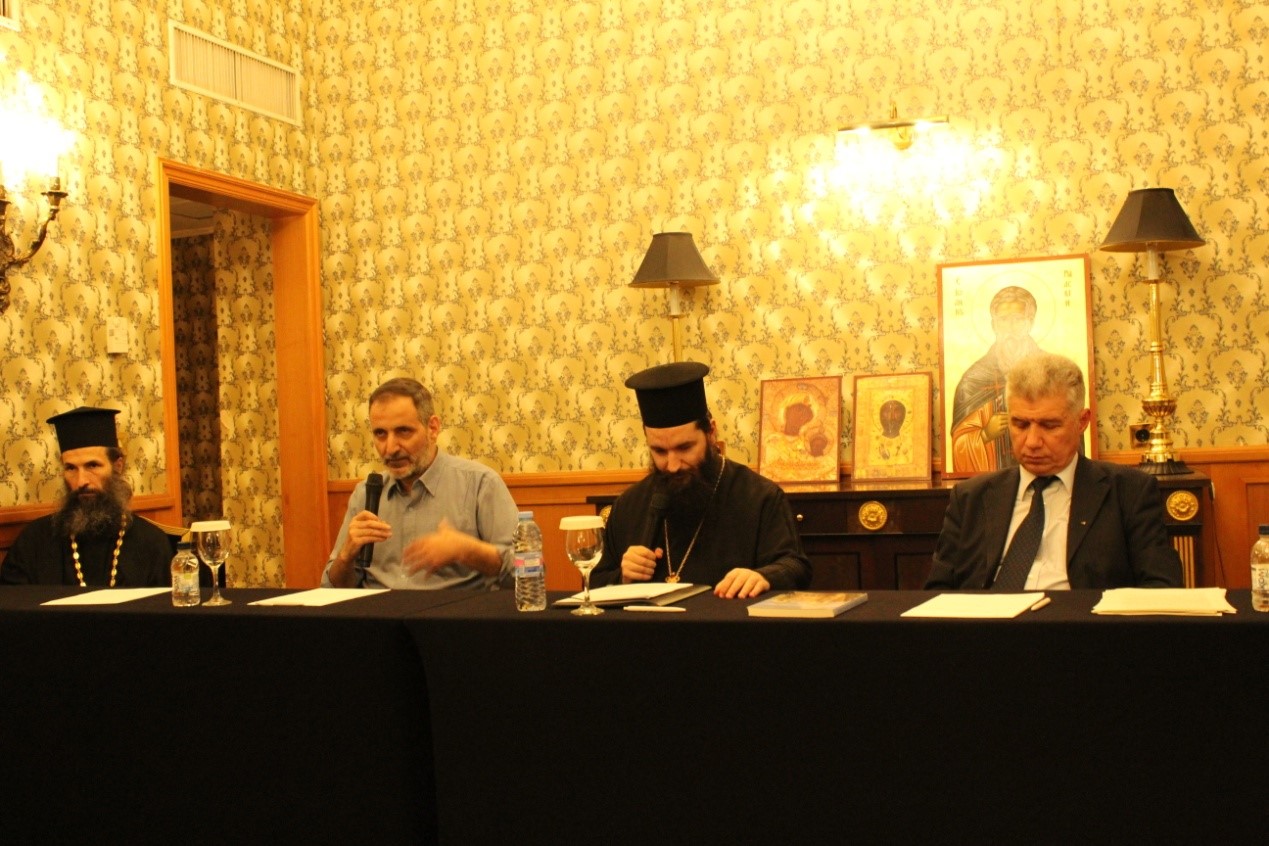
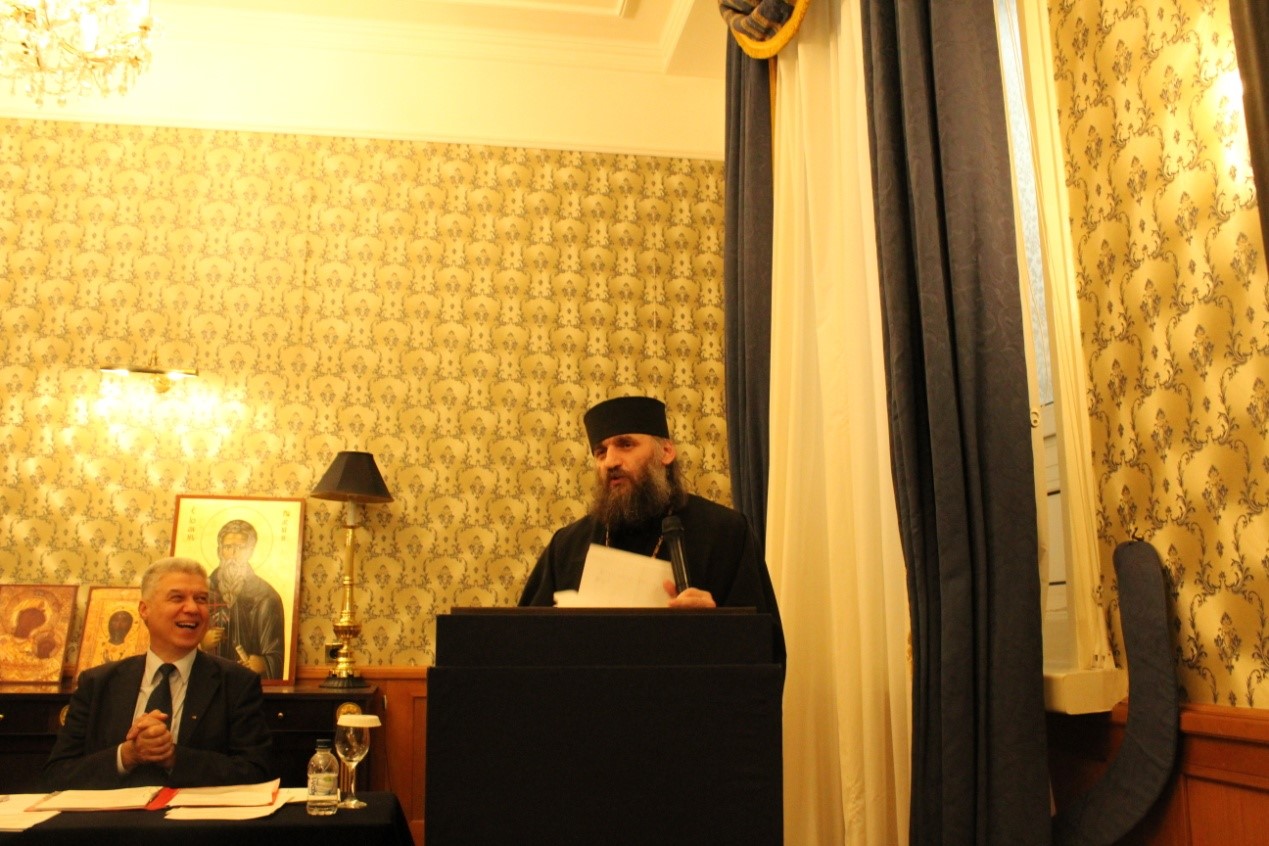

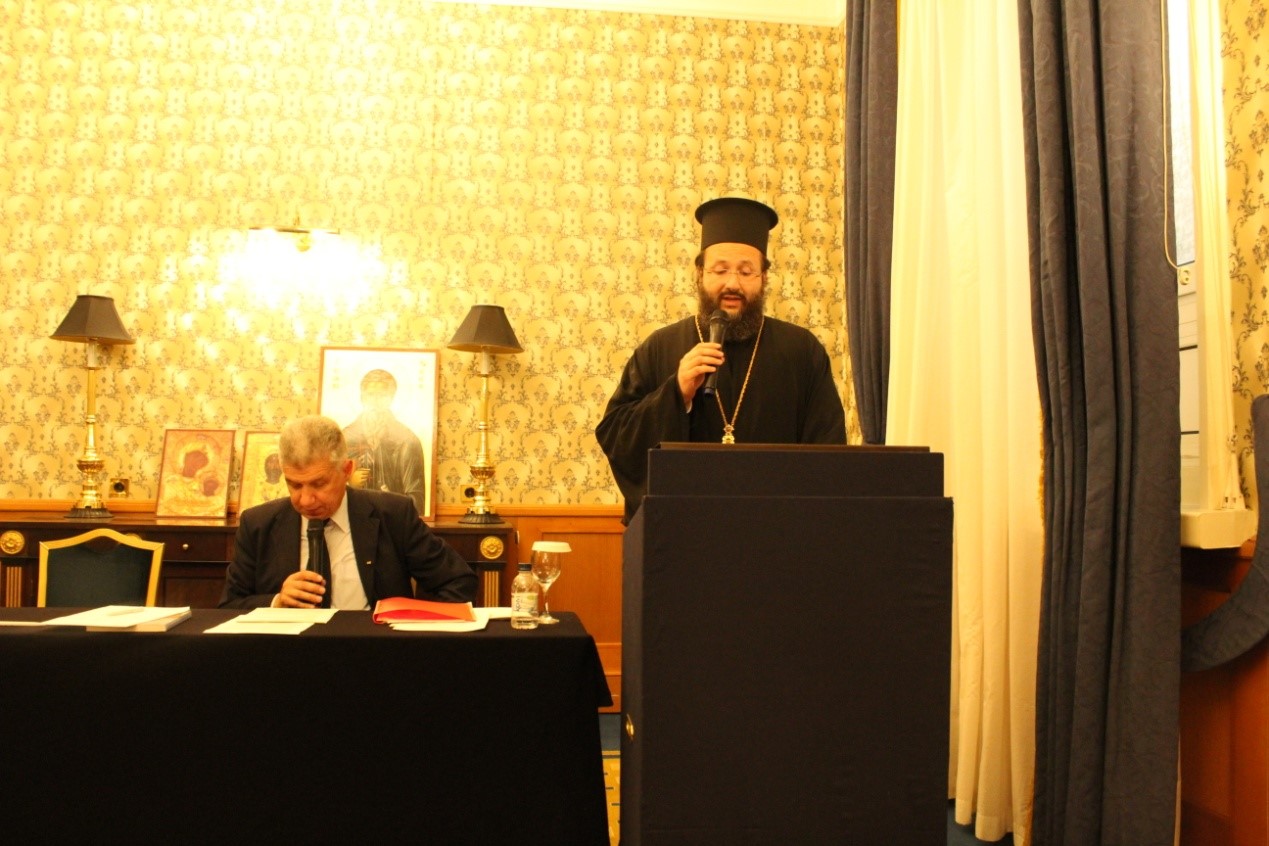

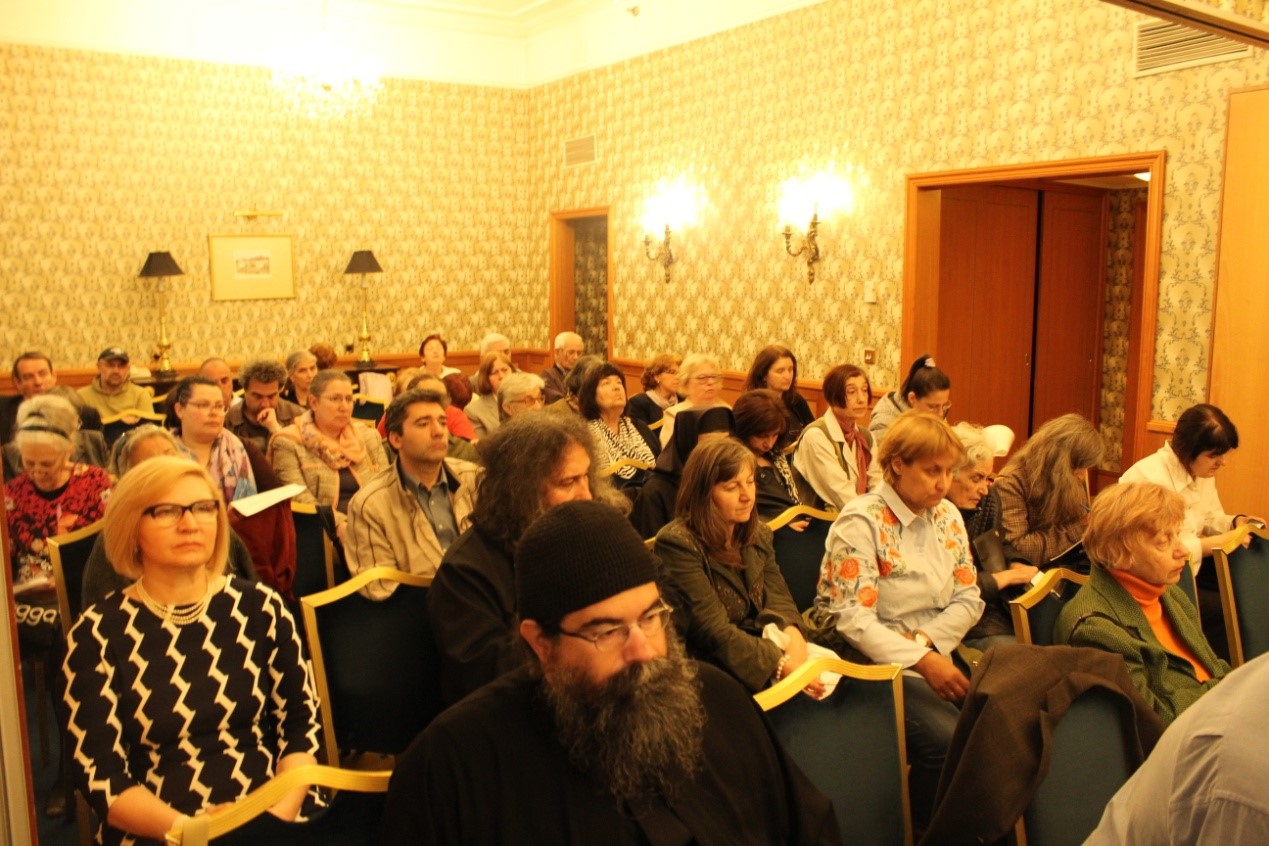


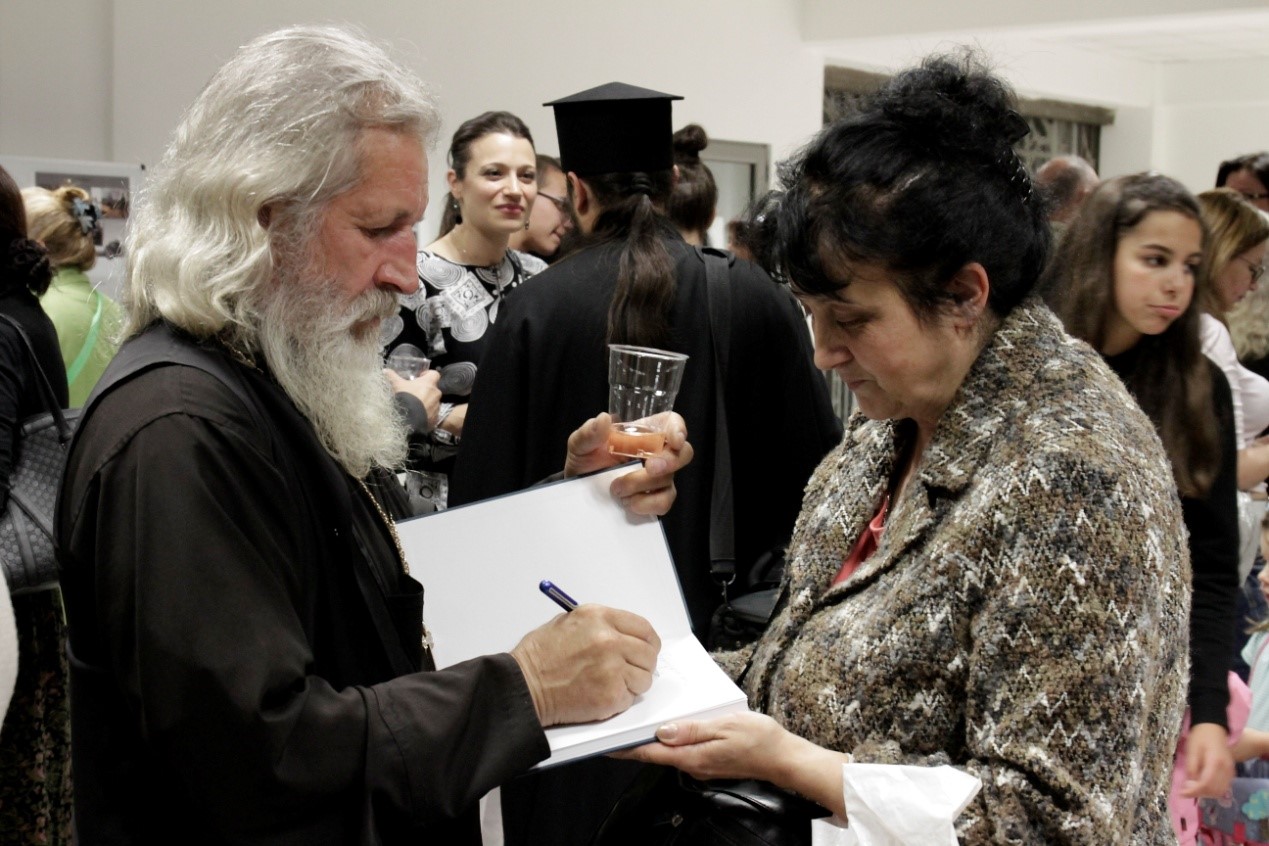
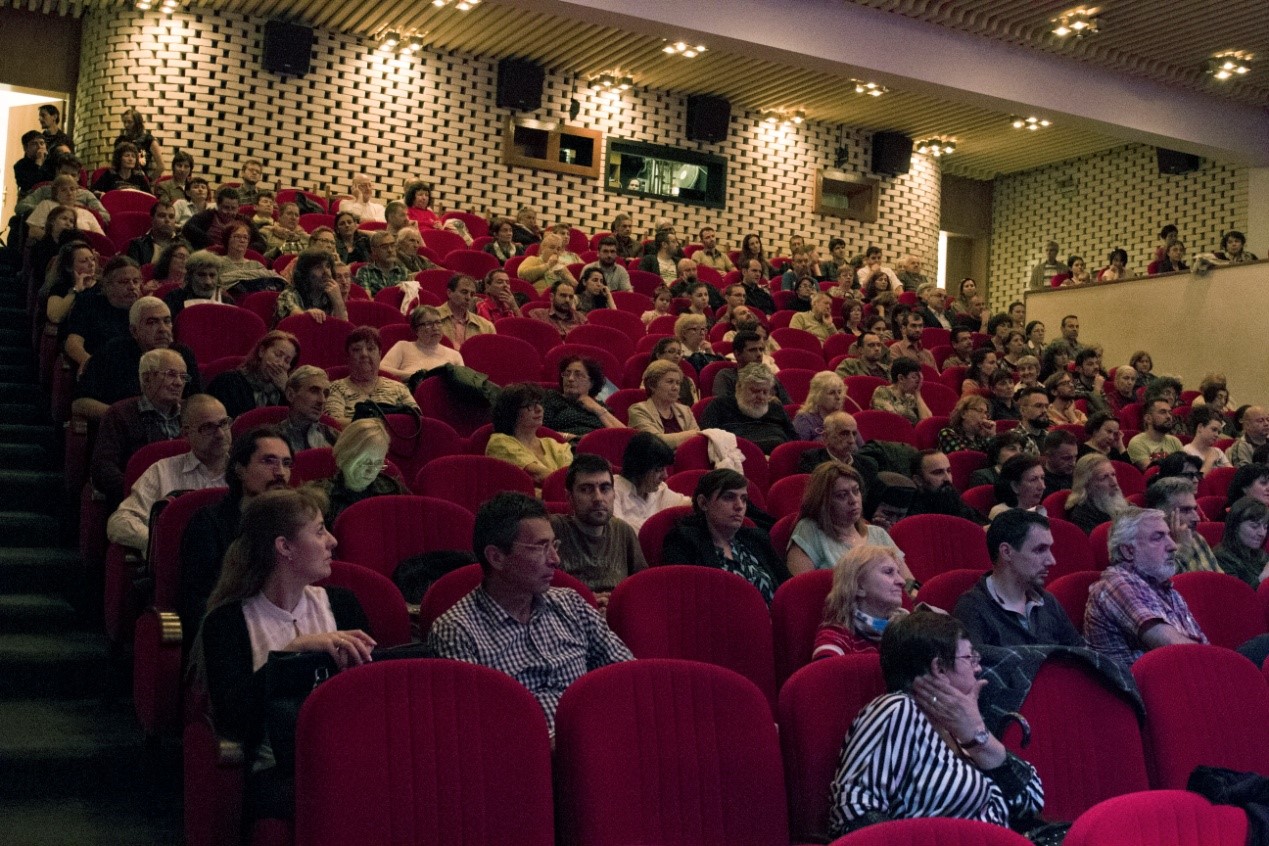

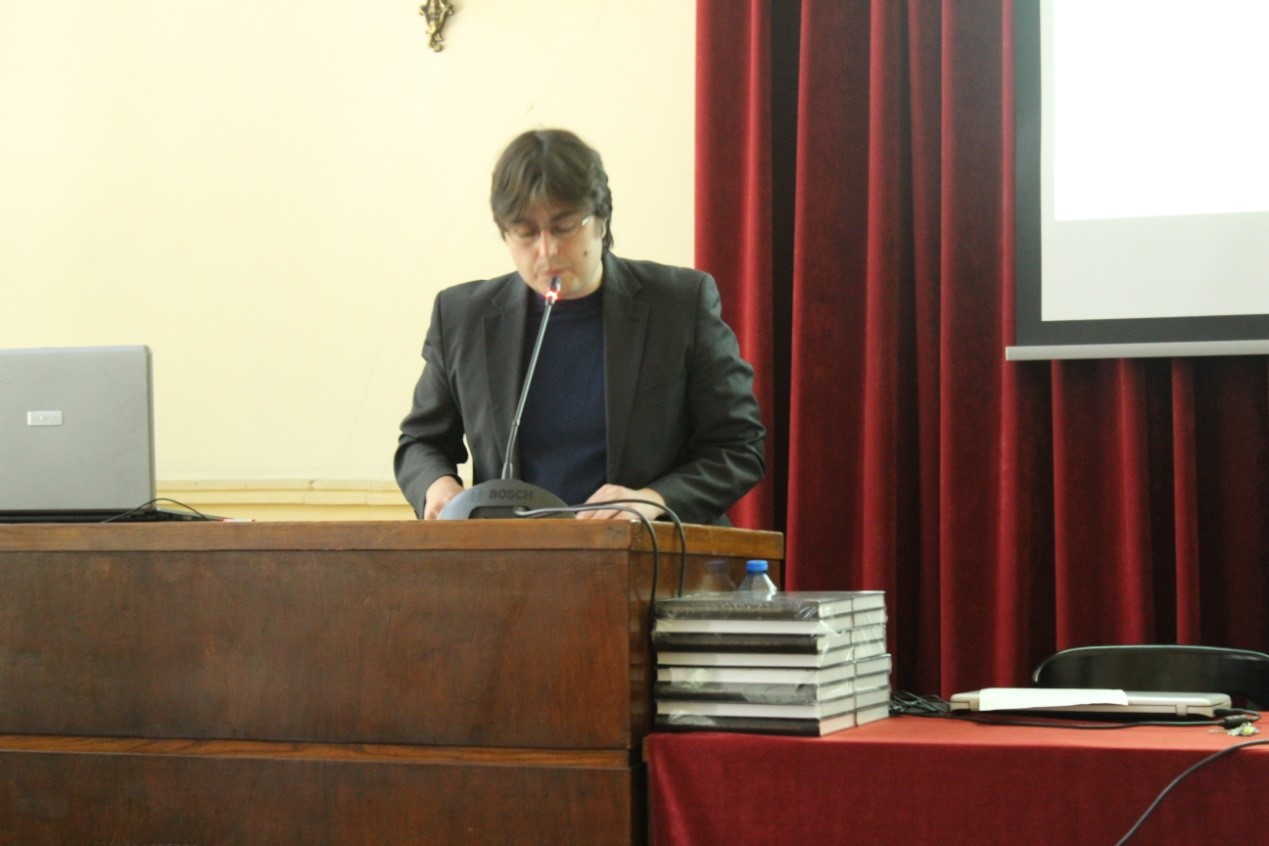
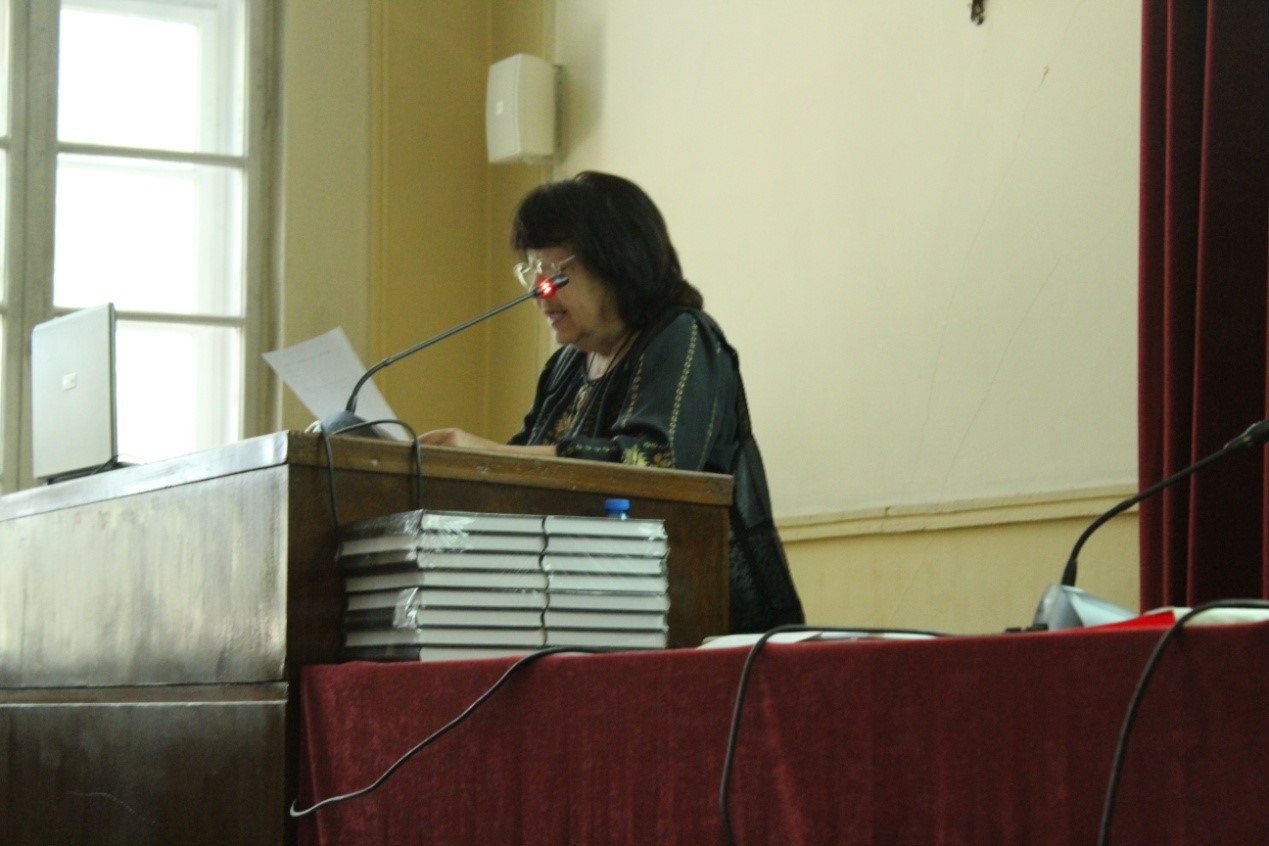
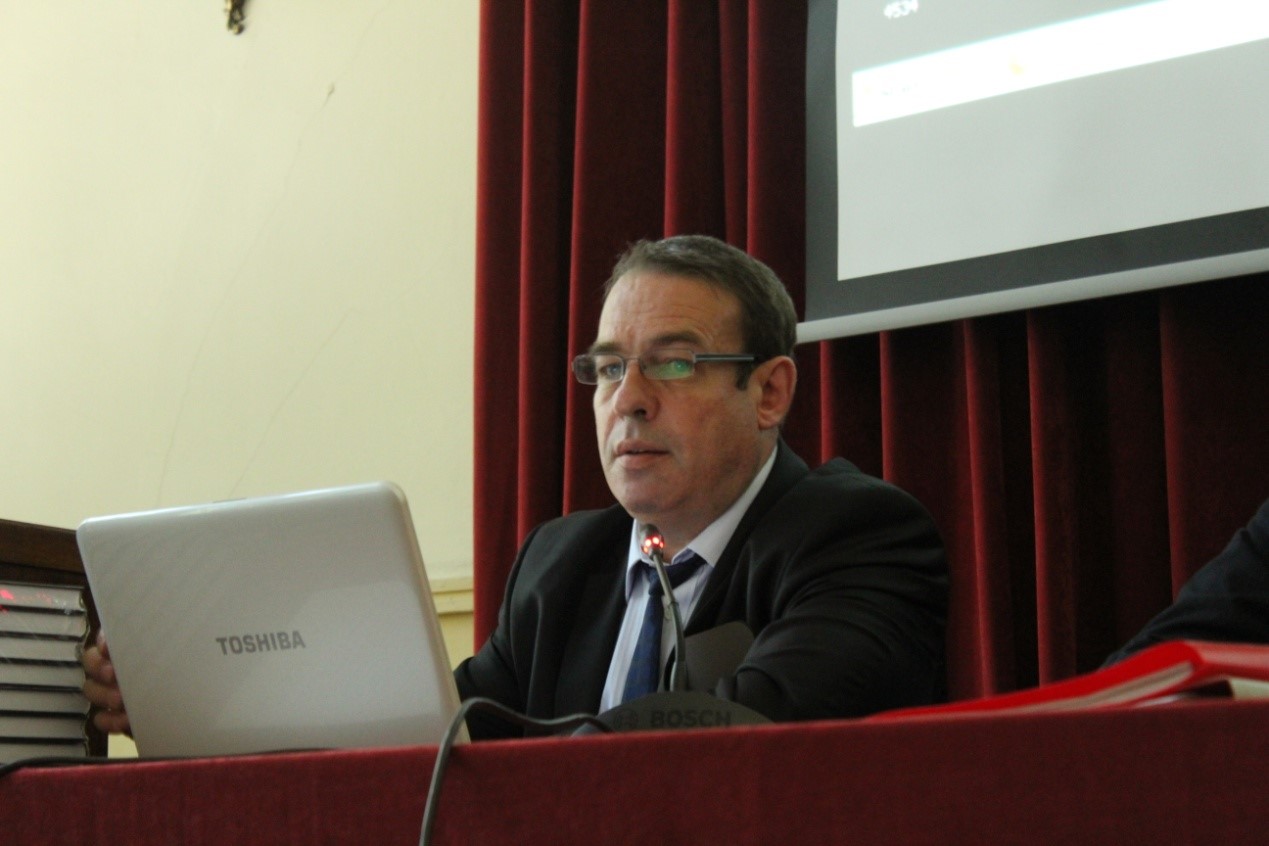
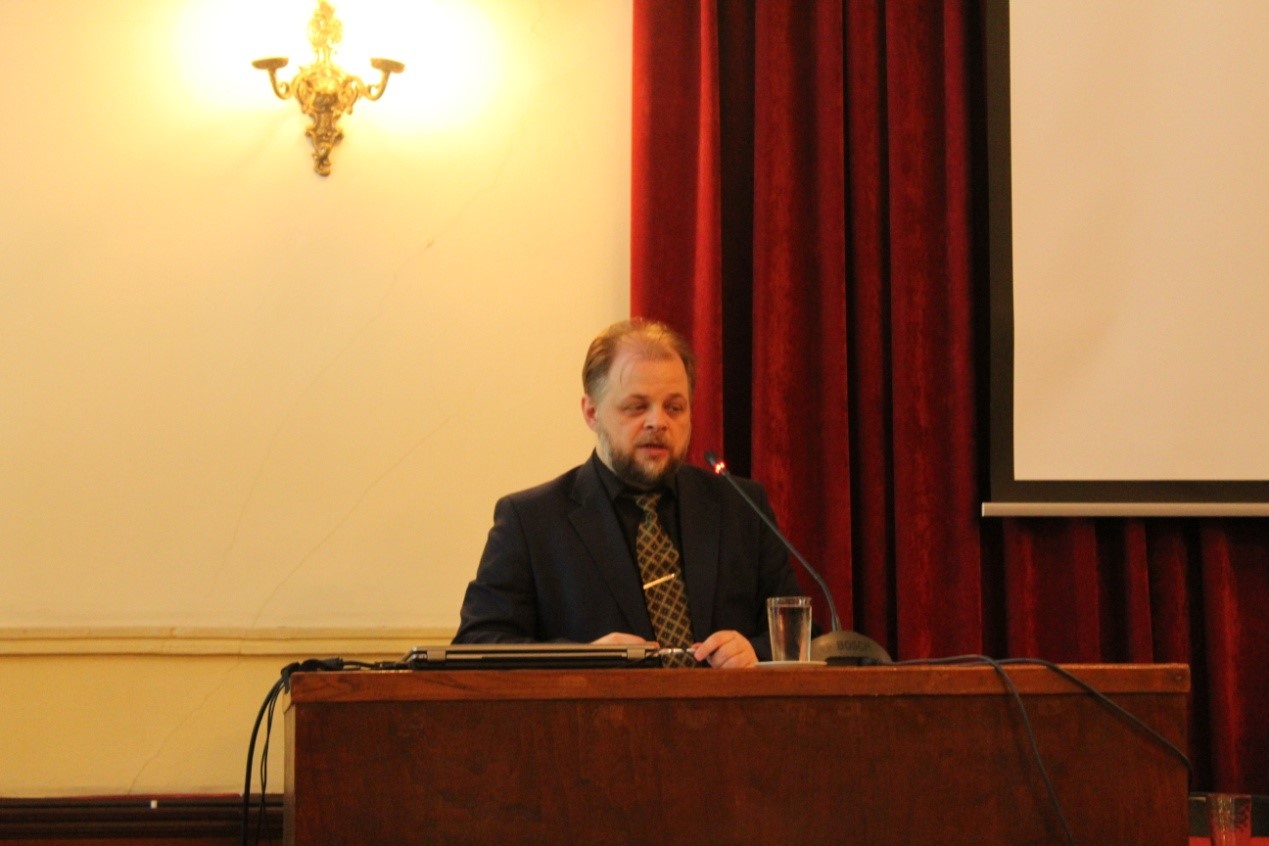
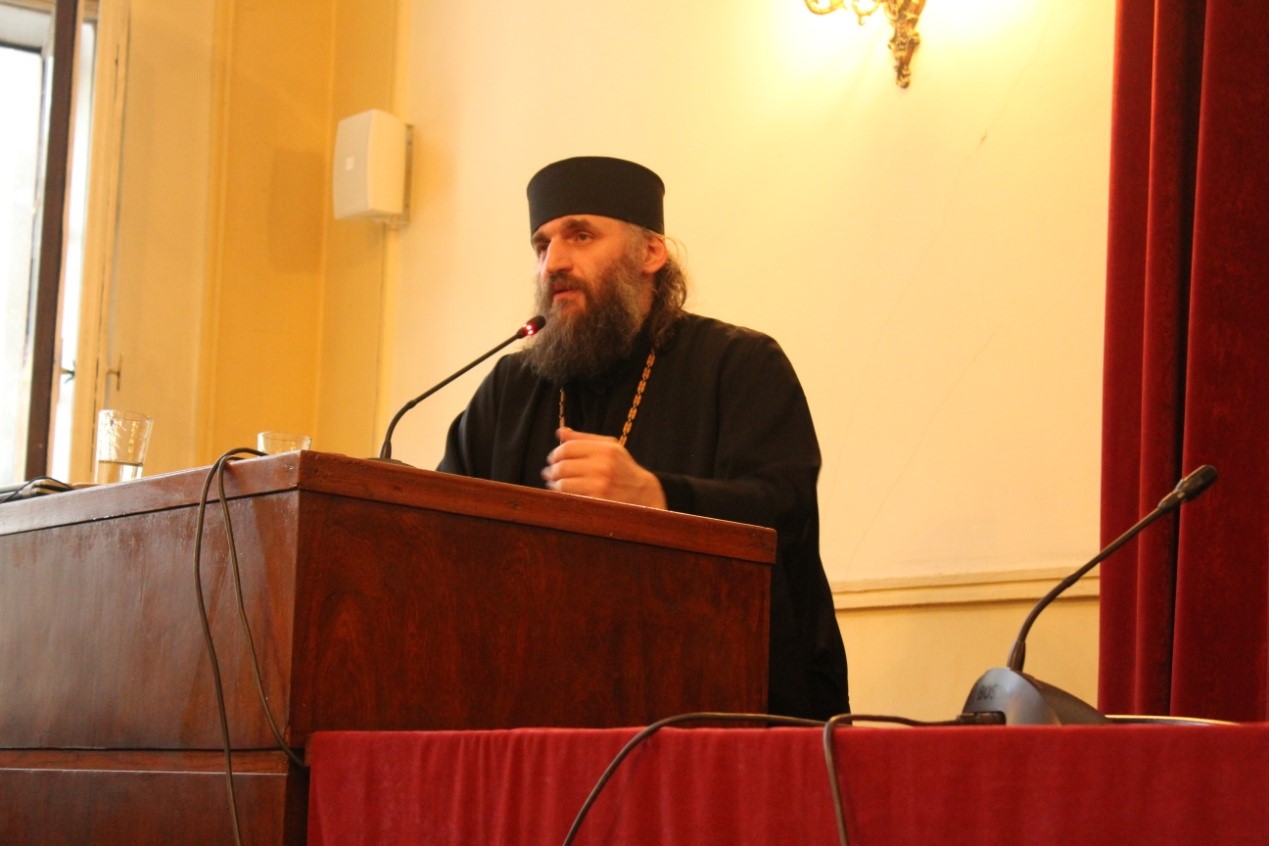

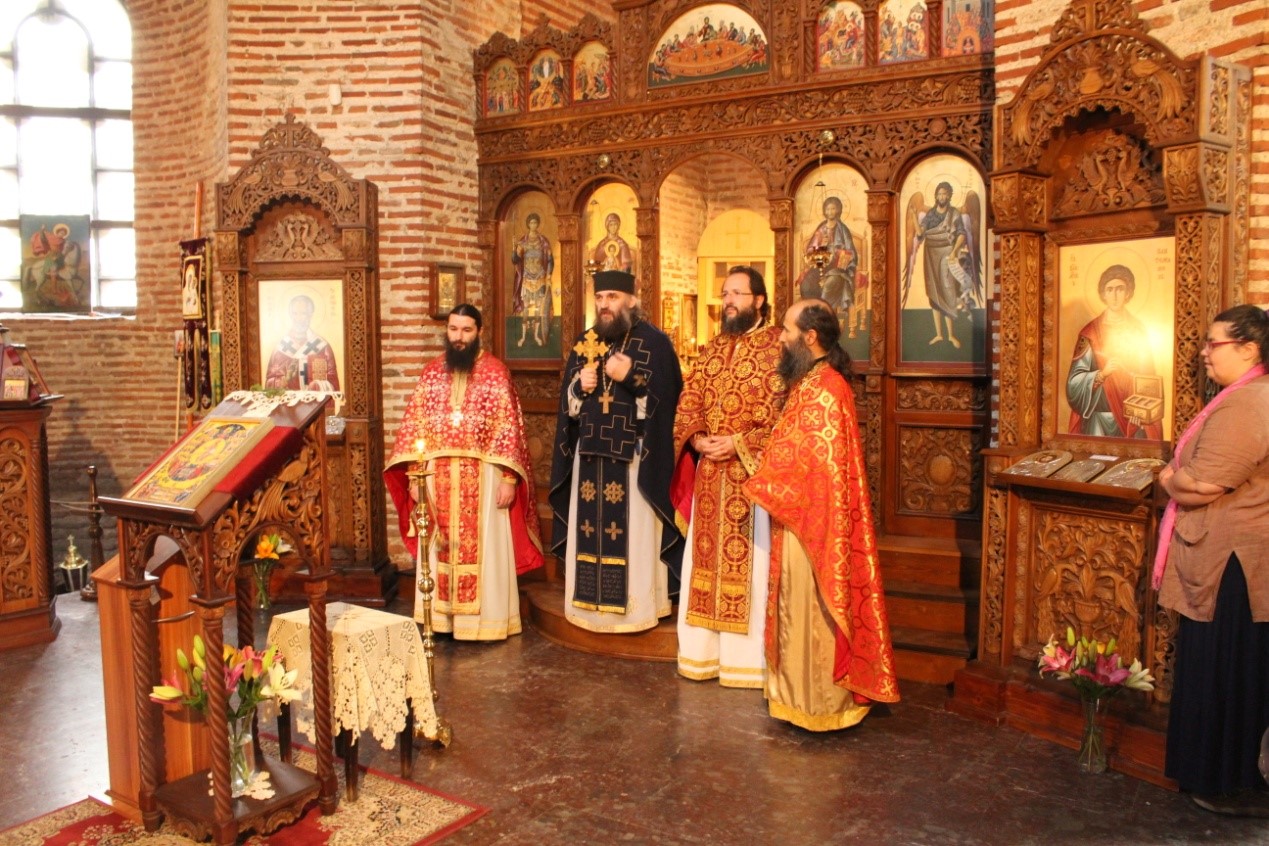
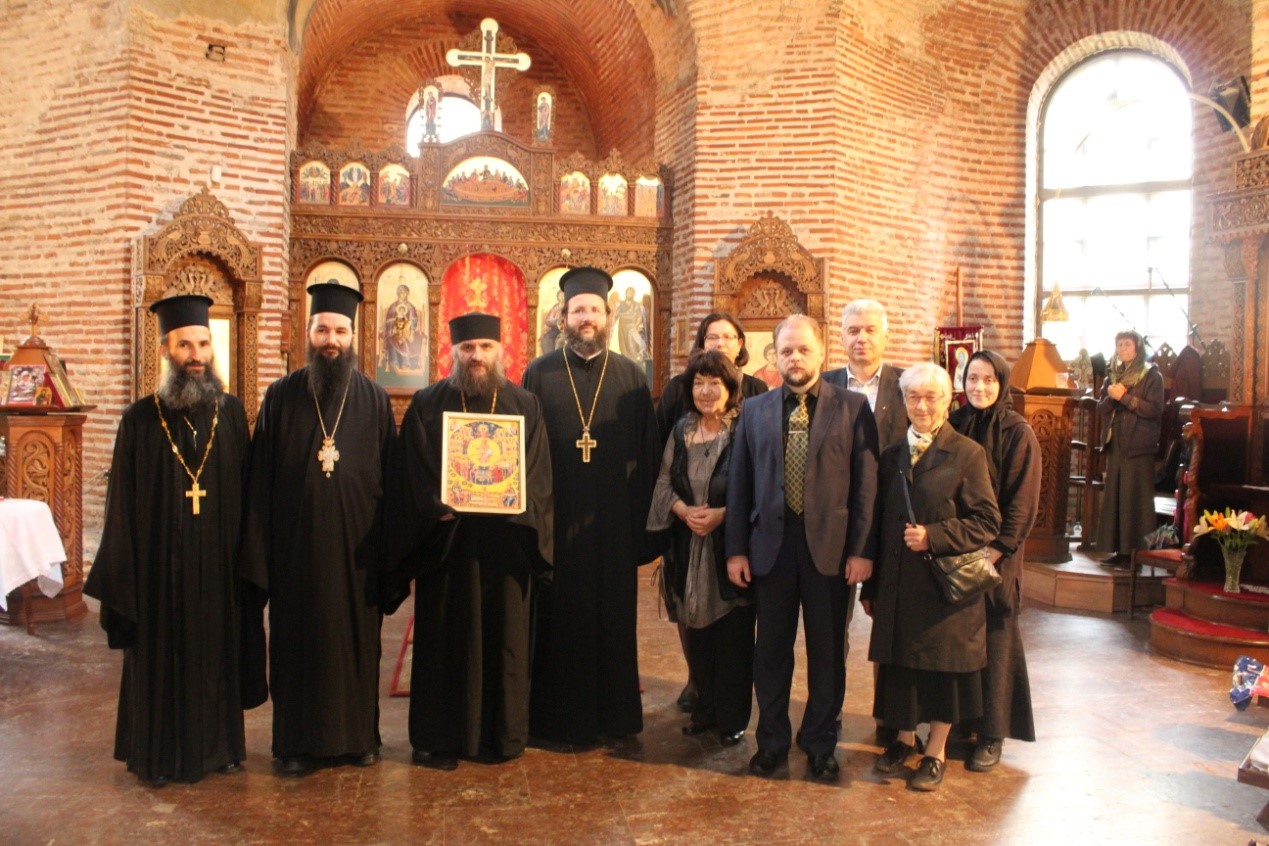
Between the 9th and 10th of June 2017, the first Inter-Orthodox Symposium was held which addressed among other subjects, the 2016 pseudo-synod of Crete, where theological issues were analysed using scientifically critical methods. The symposium took place within the Patriarchate of Bulgaria with the great blessing of His Holiness Neophyte, Patriarch of Bulgaria, and organised by the Saint John of Rila Initiative Committee of the “Saint George” Rotunda Church.
The Rotunda Church is a historical church built during the Roman era in the former Byzantine city of Serdica, modern-day Sofia, which stands as a national symbol of the defensive struggle for the True Faith.
The well-known writer and theologian of the Bulgarian Church, Mr. Georgi Todorov, inaugurated the Symposium with the launch of the book: “Crete: The secularist spirit against Holy Catholicity”.
This book describes the evolution of the phenomenon of the pseudo-synod of Crete from its birth to maturity, with new historical and theological elements, tracing the birth of the heretical phenomenon of Crete from the period of Ottoman rule. At the same time, it reveals the influence of the British and Ottoman Empires on the Ecumenical Patriarchate from the beginning of the 19th century. The focal point is on the Patriarchs: from Joachim III, Meletius Metaxakis, Athenagoras to Bartholomew, revealing their role in achieving the secularisation of the Orthodox mindset.
The second host of the Symposium was the Faculty of Orthodox Theology in Sofia.
Mr. Professor Alexander Omarchevski, the Dean of the Faculty of Theology, spoke about the legacy of the Holy Emperor Constantine and its degradation due to the rise of secularism in contemporary church circles.
Important academic discourses presented the life of Saint John of Rila and his testament about the defence of Orthodox faith and dogma.
The attendance of the representative of the Church of Georgia was a pleasant surprise and a joy. Father Mihail Bregvadze, who is one of the key figures of the Church of Georgia, a humble hieromonk and abbot, and also a professor of the Tbilisi Academy, who is at the right hand of Patriarch Ilia of Georgia, told us about the pressures which the members of the delegations were subjected to at the final pre-synodal meeting in Chambesy, in order to accept phrases and teachings foreign to the spirit of Orthodoxy of the Holy Fathers. That is why the Georgian delegation, which included Father Mihail, did not agree to sign the text about mixed marriages, which was based on the so-called “baptismal theology”. This is the idea that anyone who is baptised in the name of the Holy Trinity can be married and is considered to be part of the so-called ‘invisible Church’. After this event was when he decided not to go to Crete.
It was shown in the discussions held at the round table that the pseudo-synod of Crete introduced a new ecclesiology into the Church, an unclear ecclesiology with Protestant influences. The Church and those who are outside the Church are no longer defined in an Orthodox and patristic way, in contemporary language.
As Father Mihail observed, from the desire to reach contemporary people outside the Church, the language was secularised and the ethos of the Church was no longer being transmitted. In fact, the confusing language of the pseudo-synod of Crete is devoid of the Holy Spirit. This is based on Barlaamite thinking and a lack of understanding of one’s own identity.
Father Mihail Bregvadze also reminded us of the Synodal Resolution of the Church of Georgia which condemned the pan-heresy of ecumenism and the so-called unorthodox dialogue within the World Council of Churches since 1998.
A representative at the round table said: “If the Synod of Crete had defined the Orthodox Church as the One and Unique Church and that only inside Her is the salvation and sanctification of mankind realised; that the dialogue with the heterodox is done out of love for their return to the One and Only Church; if it would have condemned the theory of “incomplete churches”, and on the other hand, if the erroneous ecclesiological theories such as the branch theory, baptismal theology, mixed marriages, the use of the name “churches” for heretics and the lack of any condemnation of these theories so harmful to the Church, were not circulated, then we would have gone to the Synod of Crete as if we were going to an Orthodox Synod. However, now we have to preserve our heritage given by the Holy Fathers, so we must not follow our mind and the secularist spirit exuded in almost every phrase from Crete Synod texts.”
The Russian Church also had representatives. It was recalled that the Synod of the Russian Orthodox Church Outside of Russia expressed itself clearly and directly against the pseudo-synod of Crete through an official letter submitted to the Council of the Russian Church before Crete, specifying not to participate and not to accept unorthodox proposals.
Archpriest Angelos Angelakopoulos and I participated on behalf of the Holy Metropolis of Piraeus. Father Angelos Angelakopoulos spoke about the Unionist Synod of Ferrara-Florence and the measures taken against that pseudo-synod.
It is important to underline in the work of Father Angelos Angelakopoulos that Church history records the canonical measure (Canon 15 from the First-Second Council of Constantinople) of ceasing commemoration of the bishops who had accepted Ferrara-Florence. Saint Mark of Ephesus broke off any communion with the Church of New Rome, Constantinople. At the same time, it was also emphasised that the phenomenon of Crete is much more serious than Ferrara-Florence, even if the explicit Eucharistic union with the heterodox is not expressed, yet there is a pragmatic union with all the heterodox within the World Council of Churches (WCC), through common prayers, common texts, common statements, common synodal acceptances, etc. now established through Crete’s texts. It is a new Ferrara-Florence but much more devious.
My paper was entitled “A historical approach to the context of the dialogue with the heterodox: The Toronto Declaration.”
I owe thanks to the Romanian theologian Mihai-Silviu Chirila for his exceptional contribution to this work. In this paper, I addressed the dangerous ideas circulated in the Declaration, namely the idea of a synodal system within the WCC, where the “Churches” which are engaged in dialogue have equal rights and co-exist in a synodal system, where “Churches” mean all heresies. I then addressed dogmatic minimalism which is abundantly present in the texts of Crete Synod, which means to consider a minimal shared belief in the Holy Trinity and Jesus Christ and nothing else, as the basis of one’s existence in the “Church”, the so-called “ecclesiological neutrality”, the unity in diversity of the “evangelical experience”, the theory of “incomplete churches”, etc.
I emphasised the fact that these teachings of Protestant origin which are foreign to the Church, have now been passed, perhaps subtly, into a synod that claims to be pan-Orthodox and valid for the Orthodox Church, is abominable.
In this Symposium, the confessional and salvific position of the Church of Bulgaria, who has already condemned Crete in a synodal manner was praised, and at the same time, the condemnation of the Toronto Declaration and the pseudo-synod of Crete within the Universal Orthodox Church was demanded immediately to the applause of all.
There should have been a forceful rejection and condemnation from every Local Church of this pseudo secularist synod, which introduced the cancer of heresy into the Church. The Pleroma of the Church does not and will never accept heresy, and has already rejected it as a foreign body. The fall of the Orthodox Rome was also mentioned and the fact that the Truth does not necessarily reside in a well-organised worldly institution with political power, but the Truth resides in the weak and the few, in the insignificant and the ignored.
The talks were about the effort to remain in the Church and at the same time to define boundaries, either personally, synodally, or in a group, from any institution that does not preach the Truth of Christ, in the effort for each of us to remain in the Church of Christ, in the Truth.
Only a common effort and a fervent faith, ready for sacrifice and full of love and peace can revive the previously declared decisions of the Orthodox Church against the ecclesiological heresies and the secularist spirit of Crete.
All of these theories which were circulated in Crete were already fully condemned by the Orthodox Church centuries ago. The “historical designation of Churches for heterodoxies” was condemned in the Synod of Jerusalem on 16th March 1672 (convened by Patriarch Dositheus) when the Calvinist influenced Confession of Faith of Patriarch Cyril Lukaris was anathematised.
This Symposium has become an Orthodox platform for theological dialogue using scientifically critical methods, between the Churches that wanted to remain in the Truth. It is also a cry to the other Sister Churches to return to the Orthodox ethos, renouncing the shameful pseudo-synod which puts them in imminent danger of losing their Orthodox roots, which leads to the relativisation and abolition of these Local Churches.
The withdrawal of the Local Orthodox Churches from the “World Council of Churches” was demanded, following the example of the venerable Churches of Georgia and Bulgaria, together with the condemnation of the Toronto Declaration and the pseudo-synod of Crete.
The chants and prayers of the Divine Liturgy were heard in Greek, Church Slavonic, Bulgarian, Russian, Georgian and Romanian.
Fr. Matei Vulcanescu
Protopresbyter of the Holy Metropolis of Piraeus
Biserica Ortodoxă este universală - Blog personal al Părintelui Matei Vulcanescu